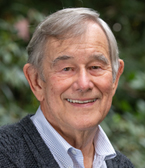No Child Left Behind (NCLB), the federal school-accountability law, is widely held to have accomplished one good thing: require states to publish test-score results in math and reading for each school in grades 3 through 8 and again in grade 10. The results appear to be telling parents whether their child’s school is doing a better job than the one across town, in the neighboring city, or across the state. But accountability works only if the yardstick used to measure performance is reasonably accurate. Unfortunately, the yardstick required by the federal law is not.
General Audience Articles
Johnny can’t read … in South Carolina. But if his folks move to Texas, he’ll be reading up a storm. What’s going on?
It turns out that in complying with the requirements of No Child Left Behind (NCLB), some states have decided to be a whole lot more generous than others in determining whether students are proficient at math and reading. While NCLB required all states to have accountability systems in place, it did not say specifically how much students should know at the end of 4th or any other grade.
Among the most controversial issues in the heated public debate over school vouchers is the question of which families are most likely to leave the public sector and enroll their children in private schools if given the opportunity. Critics assert that the parents most likely to opt for vouchers will be those who are already most involved in their children’s education—which, on average, will mean the parents of the most motivated and gifted students.
